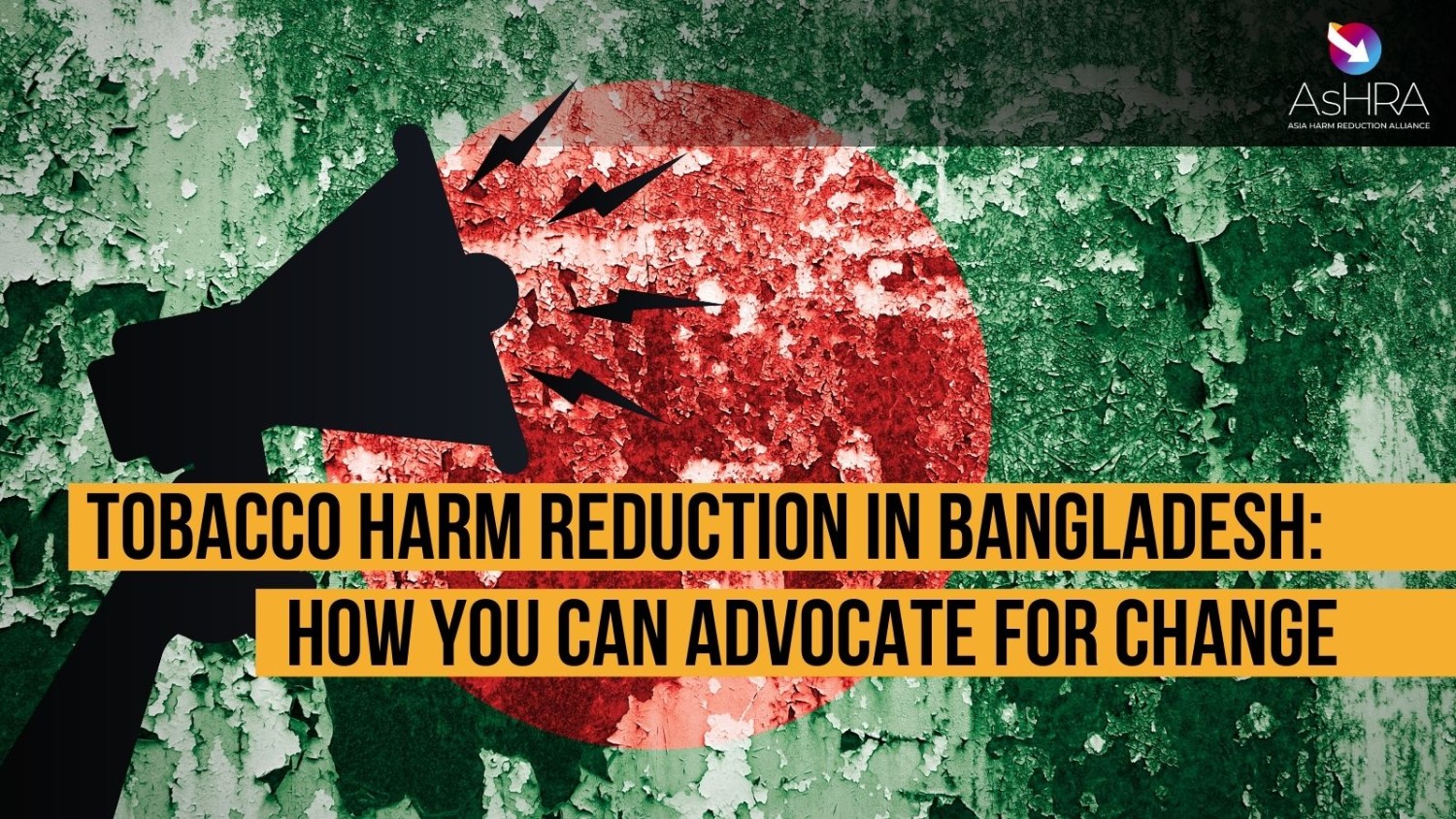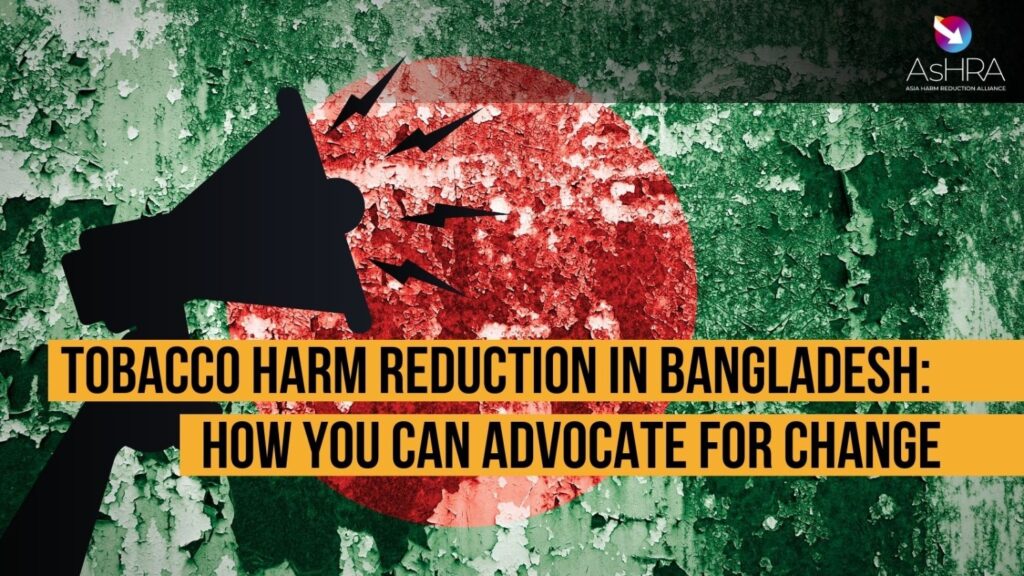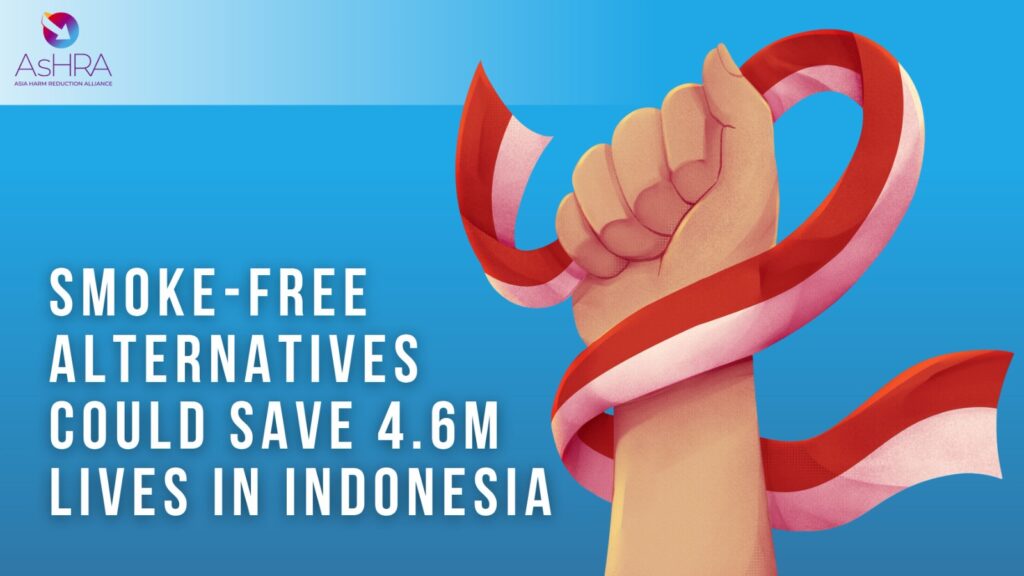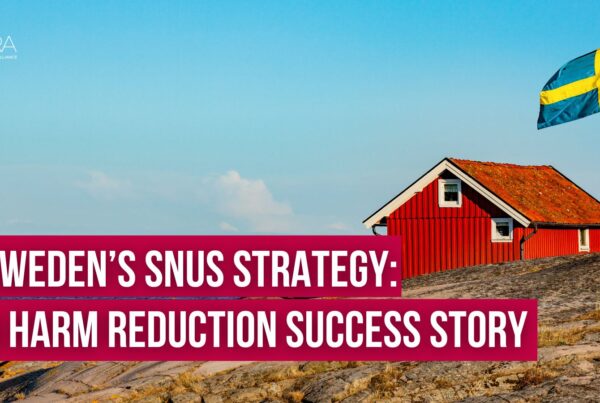Creating change begins with gaining awareness. However, the next step to change, which requires taking action, can often feel like a daunting endeavor – but it does not have to be this way.
When it comes to tobacco harm reduction, knowledge can be accompanied by a host of actions including, but not limited to:
- Sharing articles and facts with your network
- Writing blog posts or creating social media posts
- Attending and interacting at relevant events or campaigns
- Writing letters or e-mails to key policymakers around the world
To encourage everyone reading to be part of the change, this article looks at the example of Bangladesh to share how THR knowledge can be translated to THR action.
Bangladesh has a high prevalence of tobacco consumption, including 22 million users of smokeless tobacco. Therefore, tobacco is also found as a contributing factor in many of the top 10 causes of death in Bangladesh.

Despite this reality, or perhaps in a misguided attempt to respond to it, the Bangladeshi government has proposed an amendment to their Smoking and Tobacco Product (Usage) Act which seeks to implement a blanket ban on alternative nicotine products.
Such a blanket ban would take away from the solution as supporting harm-reduced products have repeatedly proven to help countries reduce their smoking rate. In fact, a recent report shows how, in Bangladesh, 920,00 lives can be saved by 2060 if tobacco control, tobacco harm reduction and early diagnosis and treatment of lung cancer is implemented into the current policy space. This also proves that harm reduction policies do not take away from tobacco control – instead, they complement each other.
Promisingly, this amendment has not yet been passed and is seeking stakeholder consultation through an advisory committee. This is a common and important part of the process in amending or creating policy – and a key part for concerned parties to have their say. Therefore, when it comes to turning knowledge into action in Bangladesh, everyone can get involved by engaging with the policymakers and decision-makers of this amendment through e-mails and letters outlining our concerns about a blanket ban.
You can play an essential role in advocating for sensible regulation and ensuring harm reduction strategies remain part of the conversation.
In doing so, individuals can advocate not only by including the facts and research shared above but also by pushing for risk-proportionate regulation and differentiated taxation, warning of illegal markets, combating misinformation and promoting a nuanced understanding of harm reduction.
THR is a proven strategy that saves lives, and public voices are critical in ensuring Bangladesh adopts evidence-based, risk-proportionate policies instead of harmful prohibitions. Join us in promoting and supporting a viable, healthier future in Bangladesh and beyond.
If you would like to send a letter or e-mail to the advisory committee on the proposed ban in Bangladesh, please find the relevant contact information below:
Mail To:
The Chief Advisor’s Office (dggiu@pmo.gov.bd)
Mail Copying:
Ministry of Health (adviser@mohfw.gov.bd, srkhasru@mohfw.gov.bd, secretary@hsd.gov.bd)
Ministry of Finance (adviser@finance.gov.bd, secretary@finance.gov.bd, ps2secretary@finance.gov.bd)
Ministry of Commerce (adviser@mincom.gov.bd, ps2adviser@mincom.gov.bd, pro@mincom.gov.bd, secy@mincom.gov.bd, ps2secy@mincom.gov.bd)
Ministry of Industries (adviser@moind.gov.bd, indsecy@moind.gov.bd)
Related Posts
 Time to support Filipino vape law, not relitigate it
Time to support Filipino vape law, not relitigate it
Time to support Filipino vape law, not relitigate it
 Greens’ Plan To Legalise Nicotine Vapes Lauded
Greens’ Plan To Legalise Nicotine Vapes Lauded
Greens’ Plan To Legalise Nicotine Vapes Lauded
 Taiwan Vaping Ban Disappointing For Its Many Smokers
Taiwan Vaping Ban Disappointing For Its Many Smokers
Taiwan Vaping Ban Disappointing For Its Many Smokers
More about
Alcohol Harm Reduction
More about





